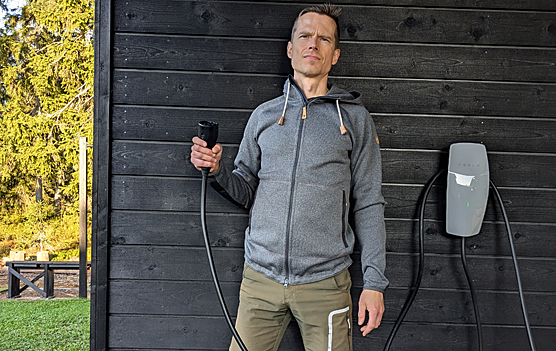
Researcher Hannu Huuki will defend the doctoral dissertation in the University of Oulu, on 25 September 2024.
The thesis concerns three studies on sequential decision-making in energy economics. In such problems, the optimal policy considers the immediate reward associated with an action and the value of the expected state in the following period. Thesis demonstrates how dynamic optimization methods can assist decision-makers in analyzing diverse sequential decision problems in electricity markets. Researcher Hannu Huuki, who works at Syke, will defend the doctoral dissertation in the University of Oulu, on 25 September 2024.
The first study concentrates on dynamic platform pricing. The positive externality related to an electricity market demand side management (DSM) service is quantified, and the optimal launching pricing decision of the DSM service is demonstrated. The research question explores how unobserved customer preferences affect dynamic platform pricing. The findings illustrate how the probability density function of customer preferences impacts the price sensitivity of platform participation. In the case of the simulated DSM service, the optimal launching price is higher when considering a uniform preference distribution than when considering preferences that follow a normal distribution. These results guide DSM service operators in designing pricing strategies.
The second study quantifies the impact of a higher share of price-responsive demand using a stylized model of the hydropower-dominated Nordic power market. The research question investigates how an increasing share of price-responsive demand affects electricity system prices and emissions. The results of the case study simulations show that an increase in the share of price-responsive demand does not result in a reduction in CO2 emissions. However, a higher share of price-responsive demand results in lower price volatility and increased value for variable renewable energy. Thus, encouraging demand-side flexibility complements CO2 emission pricing.
The third study focuses on the decision-making process of hydropower producers concerning their turbine flow allocation under various environmental flow (EF) regulation scenarios. The research question addresses how reduced electricity price volatility impacts the economic costs associated with EF constraints. The study provides evidence that lower electricity price volatility can reduce the revenue loss from EF constraints. Environmental regulators should thus consider the volatility of electricity market prices when setting EF constraints.
For more information
Hannu Huuki, KTM, researcher, Finnish Environment Institute (Syke), firstnme.lastname@syke.fi, puh +358 295 251 873
Hannu Huuki will defend the doctoral dissertation on 25 September 2024 at 13:15. The public examination (in Finnish) will take place at the following address: TA105 Arina-hall, Erkki Koiso-Kanttilan katu 1 (X-door), 90570 Oulu.
The examination can also be followed remotely
Academic dissertation: Sequential decision problems – Applications in Energy Economics